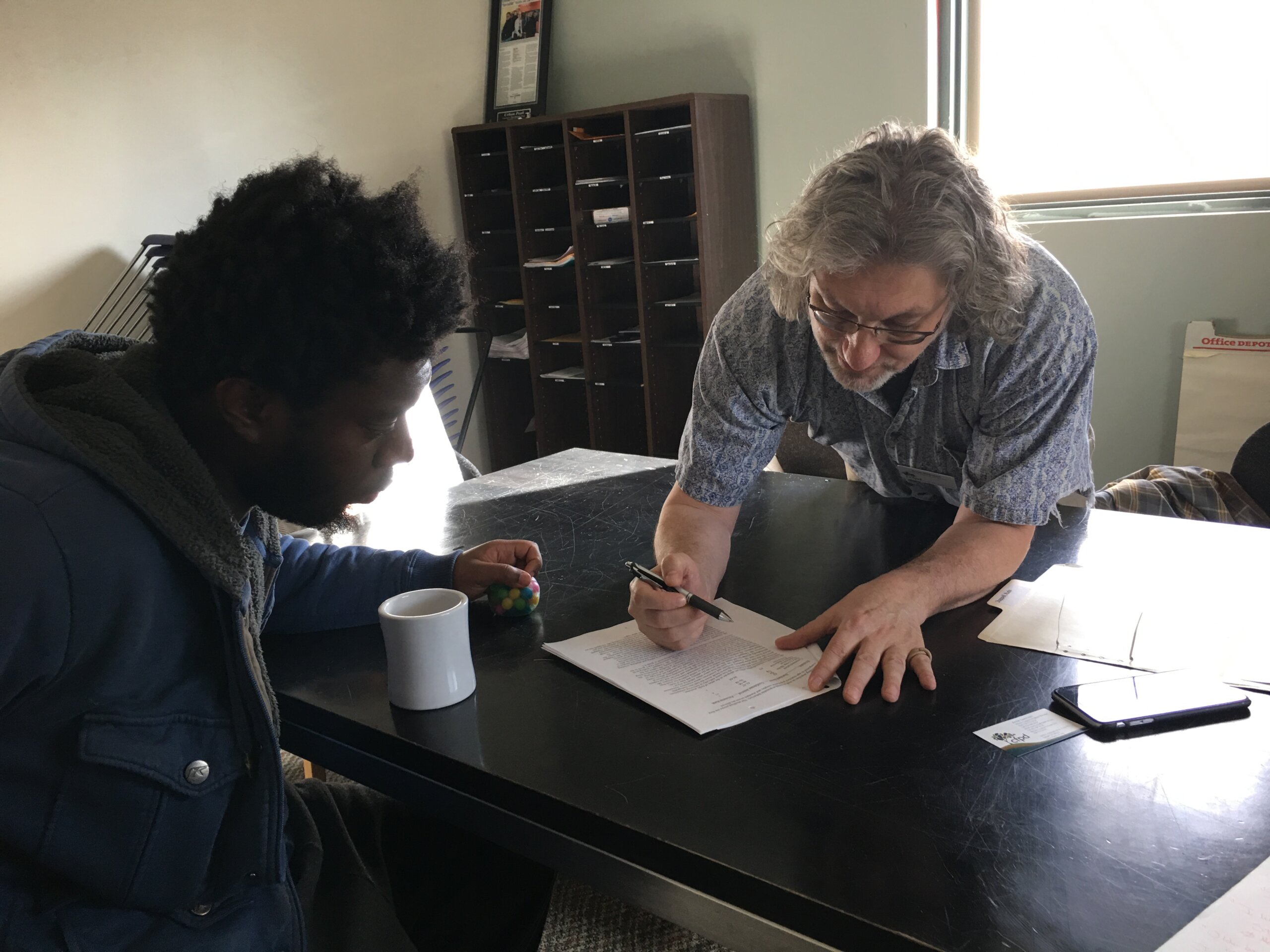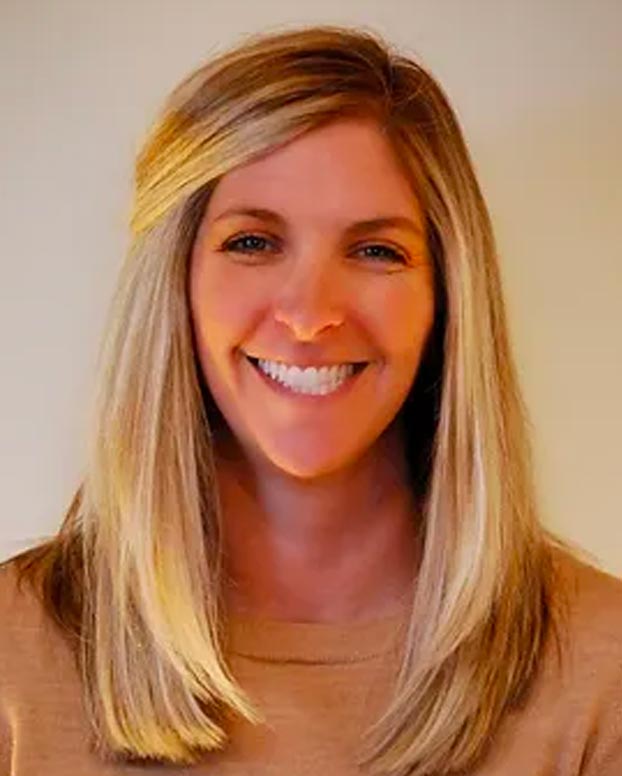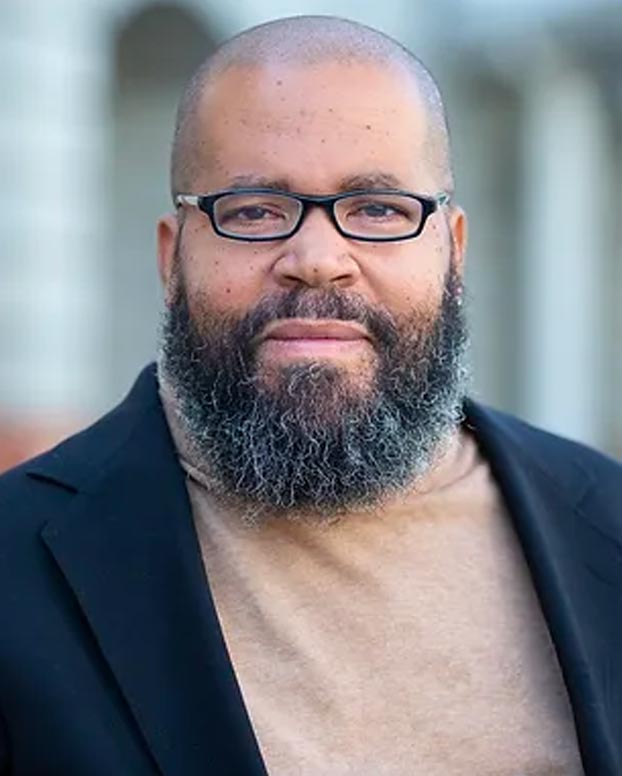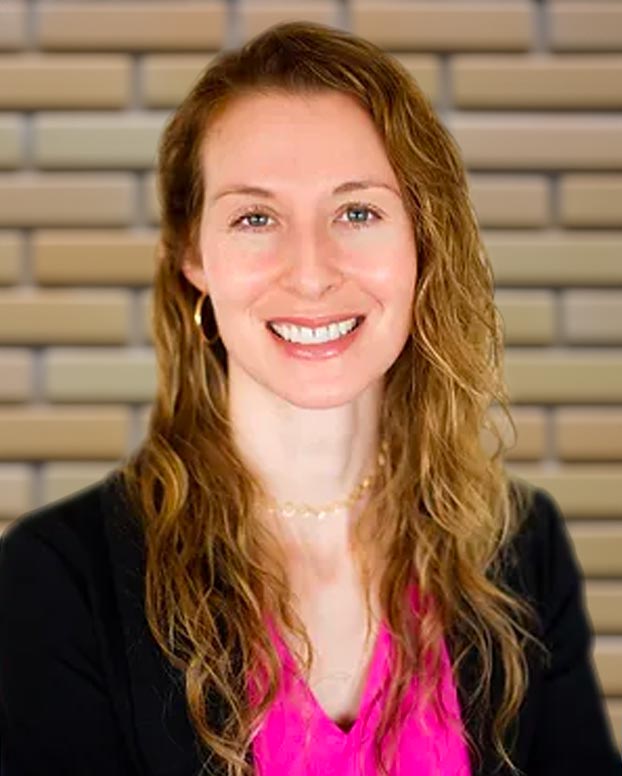The Mission Supports Program, a unique and long-standing Denver resource for individuals with intellectual and development disabilities (I/DD) who are experiencing housing instability, helps to identify those who may qualify for disability benefits, walks them through the eligibility process required to access Colorado’s Home and Community-Based programs, supports in accessing the appropriate wraparound services available through RMHS, and connects them with the individualized support they need to pursue a future away from homelessness.

Supporting eligible Denver-area residents who are struggling with housing instability to obtain appropriate disability benefits and services and connecting them with the resources and support they need.
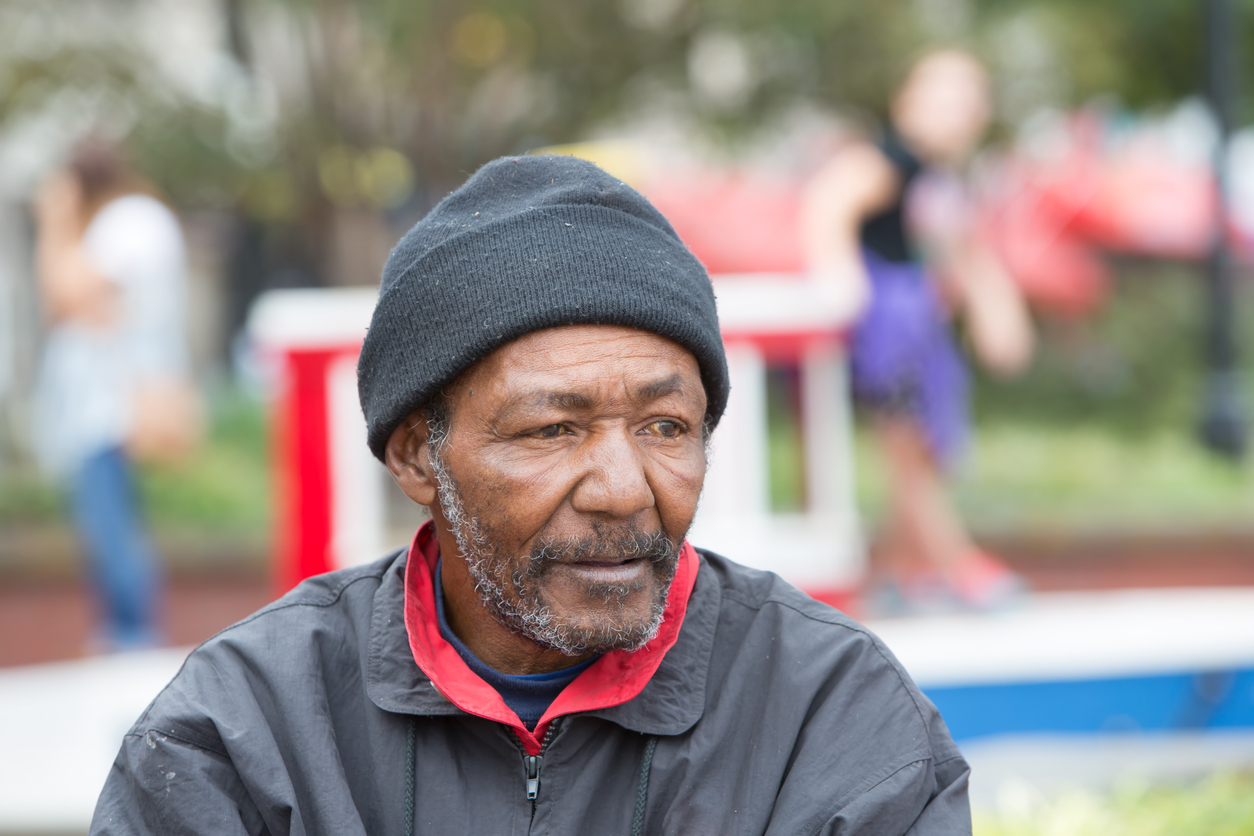
What Mission Supports Offers
- Identifies individuals in Denver who have an I/DD and experiencing housing instability to help assess eligibility for disability services and benefits.
- Works with eligible participants who need side-by-side assistance to obtain necessary I/DD benefits, medical care, legal assistance, guardianship, and available permanent housing.
- Supports self-advocacy and provides case management for those individuals who qualify for I/DD services and benefits.
- Offers service alternatives for those individuals who are not determined to have an I/DD.
Frequently Asked Questions
A developmental disability (DD) determination is formal documentation from the state of Colorado confirming that an individual has an intellectual or developmental disability (I/DD). This determination also confirms that the individual meets the eligibility criteria to receive long-term services and supports through state programs.
Click here for an overview of how to pursue an I/DD determination through RMHS. Click here for a Spanish version.
Having a DD determination qualifies you for long-term Medicaid programs that provide ongoing supports and services just right for you. It can also help you access additional community-based resources.
Click here for an overview of how to pursue an I/DD determination through RMHS. Click here for a Spanish version.
To meet the state of Colorado’s definition of an I/DD, the following three main criteria must apply:
- The disability was present before age 22
The condition must have started early in life.
- Low intellectual functioning
This usually means having an IQ of around 70 or below on a standardized intelligence test.
- Significant challenges with everyday life skills
You experience significant difficulties in at least two of the following areas, shown by scores on a standardized adaptive behavior test:
-
- Communication
- Self-care
- Home living
- Social skills
- Use of community resources
- Making decisions and self-direction
- Health and safety
- Basic academic skills
- Leisure activities
- Work skills
You may have an intellectual or developmental disability if any of the following apply:
- You received special education services when you were in school
- You’ve received testing or an evaluation that said you have an I/DD
- You were hospitalized before age 22 for a neurological disorder, seizures, or brain injury
Transitional care management is short-term, temporary case management offered by Mission Supports. It begins when a referral is made and continues until the individual receives a determination letter from the state confirming developmental disability (DD) eligibility.
Yes. If you’re currently seeking or would like to seek a developmental disability (DD) determination, Mission Supports can support you in the DD determination process. If you already have a DD determination, Mission Supports can help connect you to your existing or appropriate case manager.
Yes, Mission Supports works with people who are currently incarcerated as well as those who have a history of incarceration. Staff can help begin the developmental disability (DD) determination process while someone is still incarcerated. However, access to long-term case management and Medicaid waiver services begins only after the person is released.
No, Missions Supports does not provide housing; however, staff can connect you with housing resources.
Additionally, this Affordable Housing Providers guide can support you in your search.
Mission Supports does not provide direct financial aid. However, staff can occasionally request funding for specific needs through the Denver Mill Levy Program. Please note that approval is not guaranteed.
Program Eligibilty
Mission Supports is accessible to individuals of any age who live in or plan to live in Denver County and are unhoused, experiencing housing instability, or living in an unstable living environment. Eligible individuals must present as or have historical documentation suggesting a developmental disability and be interested in pursuing a formal Developmental Disability Determination.
RMHS has created quick guides to help you through several key processes, which include applying for Medicaid financial eligibility, qualifying for Medicaid disability determination, determining if you meet the developmental delay or I/DD criteria, and filling out the Professional Medical Information Page (PMIP).
Click here to view and use these guides, which are available in both English and Spanish.
Submit a Referral
If you would like to submit a referral to the Missions Supports program, please use our online form.
Contact Mission Supports
If you have questions, please call 303-636-5782 or email missionsupports@rmhumanservices.org
